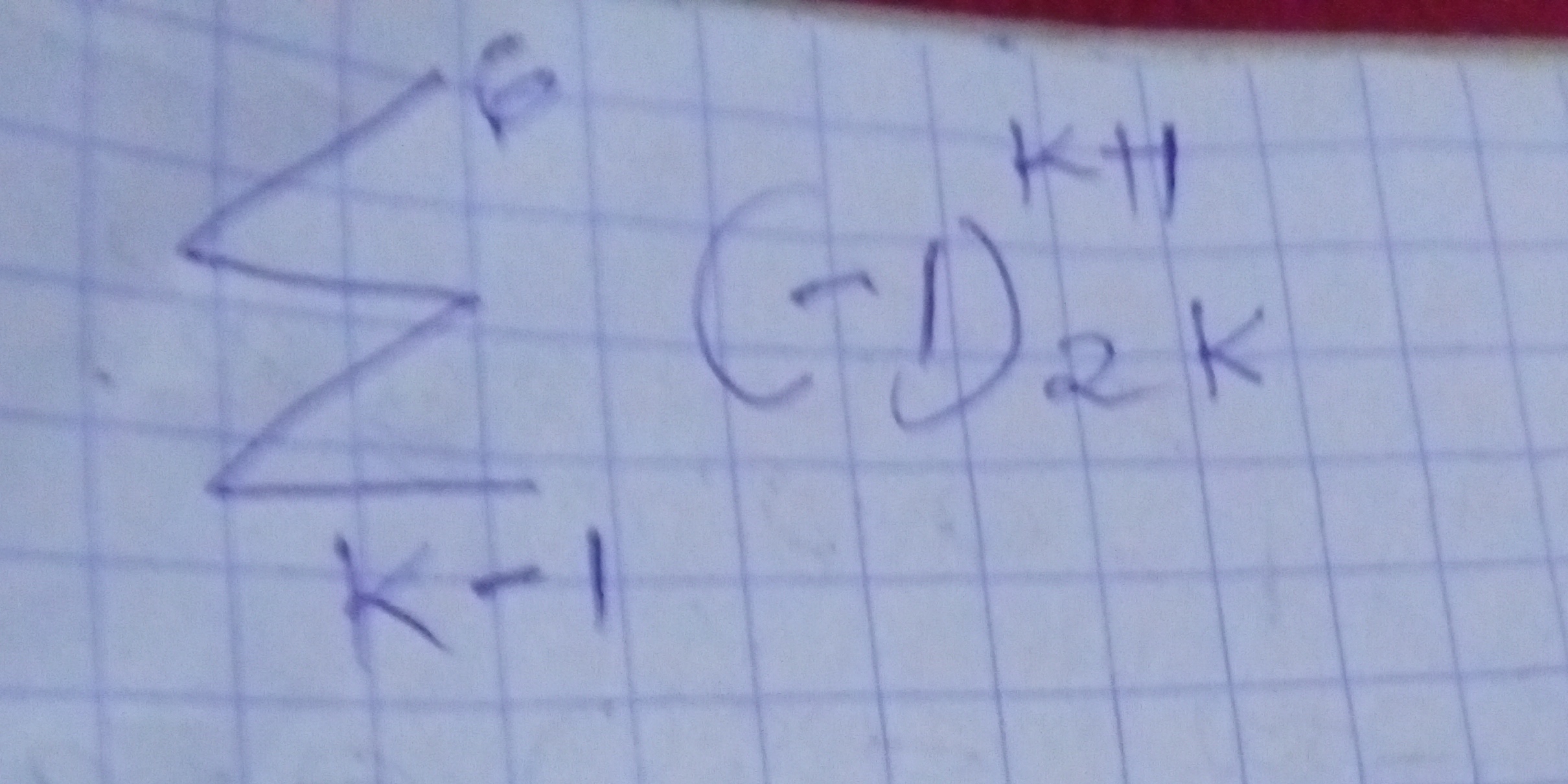Evaluate the expression involving the summation and the variables.

Understand the Problem
The question involves mathematical notation, including a summation and some expressions involving variables. It seems to be asking for the evaluation or understanding of these mathematical terms, but it's not entirely clear without context.
Answer
The result of the summation is $K^{H + 1}$.
Answer for screen readers
The final answer is:
$$ K^{H + 1} $$
Steps to Solve
- Recognize the Summation Notation
The expression given is a summation represented as
$$ \sum_{k=1}^{K} (-1)^{2k} K^H $$
We will evaluate the summation term by term for $k$ from $1$ to $K$.
- Evaluate the Exponent on -1
Note that $(-1)^{2k}$ is always equal to $1$ for any integer $k$, since raising -1 to an even power results in 1.
Thus, we can simplify the expression to:
$$ \sum_{k=1}^{K} 1 \cdot K^H = \sum_{k=1}^{K} K^H $$
- Compute the Summation
Since $K^H$ does not depend on $k$, the summation can be simplified to:
$$ \sum_{k=1}^{K} K^H = K \cdot K^H $$
- Final Simplification
We can further simplify this to:
$$ K \cdot K^H = K^{H + 1} $$
The final answer is:
$$ K^{H + 1} $$
More Information
This summation captures how many times the value $K^H$ is repeated, specifically $K$ times, leading to the expression $K^{H + 1}$. This type of manipulation is common in handling summations in mathematics.
Tips
- Misinterpreting $(-1)^{2k}$ as something other than 1. Always remember that an even exponent results in a positive value.
- Forgetting that when summing over a variable that does not appear in the expression (like $K^H$), it simplifies the summation to multiplication.
AI-generated content may contain errors. Please verify critical information